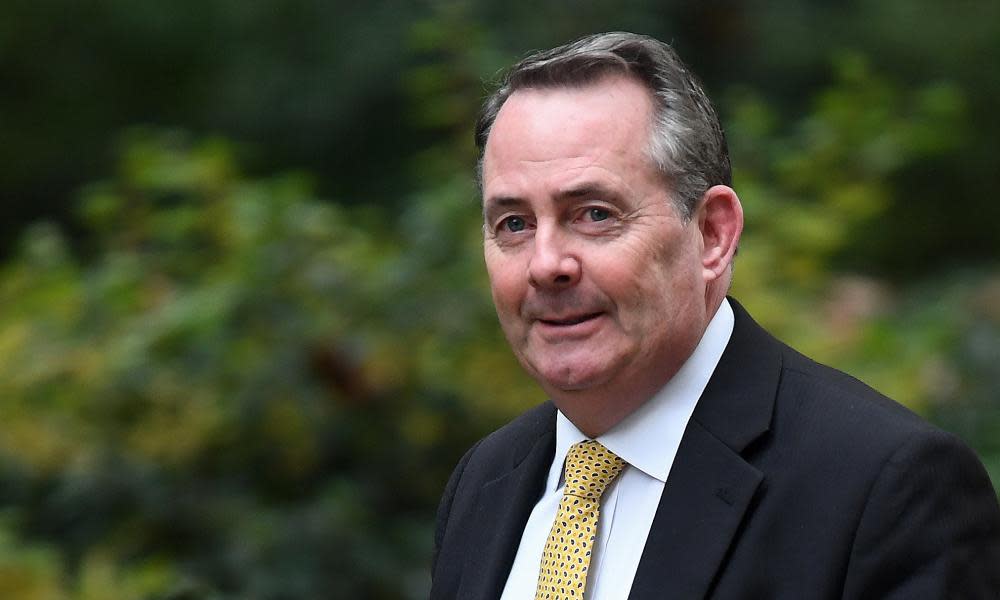Liam Fox faces growing scrutiny over Russian hack of personal email

Liam Fox is facing questions from opposition politicians, former civil servants and campaigners about how Russian hackers were apparently able to obtain government documents marked “official sensitive [UK eyes only]” from his personal email last year.
The former minister’s account is believed to have been accessed repeatedly between July and October, and 451 pages of emails and policy documents were subsequently posted on Reddit, prompting questions as to whether the dossier had come directly from Fox’s personal email.
Labour has accused ministers of misjudging the threat posed by Russia and called on the government to provide a full and public explanation of the extraordinary affair, and the extent to which Fox himself was at fault over the hack.
Rachel Reeves, the shadow Cabinet Office minister, said: “The government now needs to explain how a minister’s account was hacked by a foreign state and specifically confirm whether classified documents were accessed through a personal email account.”
Downing Street would only repeat that it was unable to comment because there was an ongoing criminal investigation, but it has not disputed that Russia had hacked Fox’s personal account, details of which have emerged via Whitehall briefings. Ministers have previously publicly accused “Russian actors” of disseminating the hacked trade documents online.
Bob Kerslake, a former head of the civil service, said Fox “absolutely shouldn’t have used his private email address” for official documents, and that there were clear rules “for the very good reason they aren’t secure”.
Ministers are told they must comply with the Official Secrets Act, but the use of private emails within government is not itself illegal. Had Fox been a civil servant, however, he would almost certainly have been reprimanded if it was found that official documents had been sent or held on a personal email account.
Alex Thomas, a former civil servant under the former cabinet secretary Jeremy Heywood, said: “For a civil servant it would be a disciplinary offence if they had shared information via an inappropriate means.” Trade policy documents are “taken seriously and the security of that information does matter”, he added.
The hack led to the emergence of a 451-page dossier online last autumn, which Labour ultimately picked up during the election campaign. Jeremy Corbyn, then party leader, said the documents, whose authenticity has never been questioned, showed that the NHS was “on the table” in trade talks with the US.
Daisy Cooper, the Liberal Democrats’ justice spokesperson, said: “Liam Fox’s actions were totally irresponsible and by sending classified government documents to his private email, it seems he might have breached national security in a very serious way.”
Ministers have periodically been embroiled in rows about the use of private emails, most notably when Michael Gove, then education secretary, was discovered in 2011 to have used a email account with the name of “Mrs Blurt” to discuss government business with his aide Dominic Cummings and others.
At least some of the emails were deleted, but the information commissioner ruled subsequently that such correspondence was nevertheless covered by freedom of information laws and should be retained.
Maurice Frankel, the founder of the Campaign for the Freedom of Information, said Fox “ought to have been using government servers for his business” and added: “There’s no obvious reason why material like this should have been on a personal email account.”
A spokesperson for Fox, who was trade secretary until the end of July last year, declined to comment. The 58-year-old is currently the UK’s nominee for director general of the World Trade Organization.


